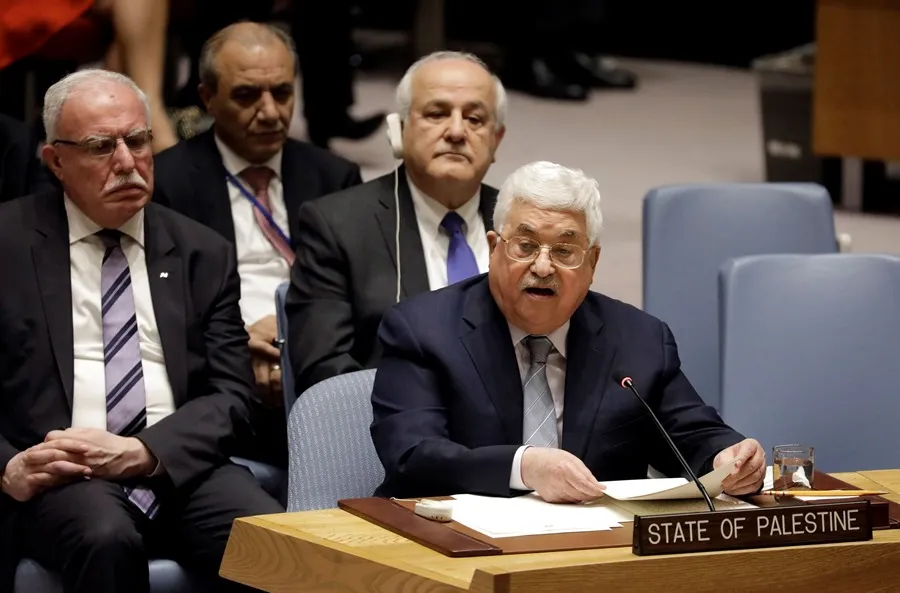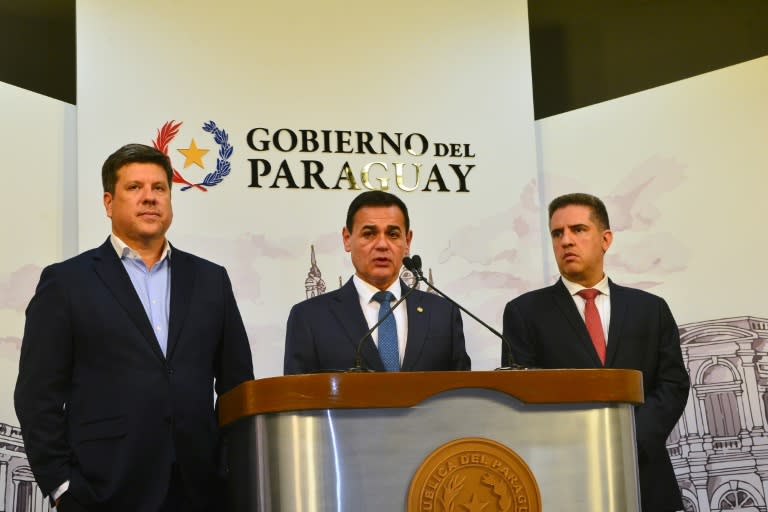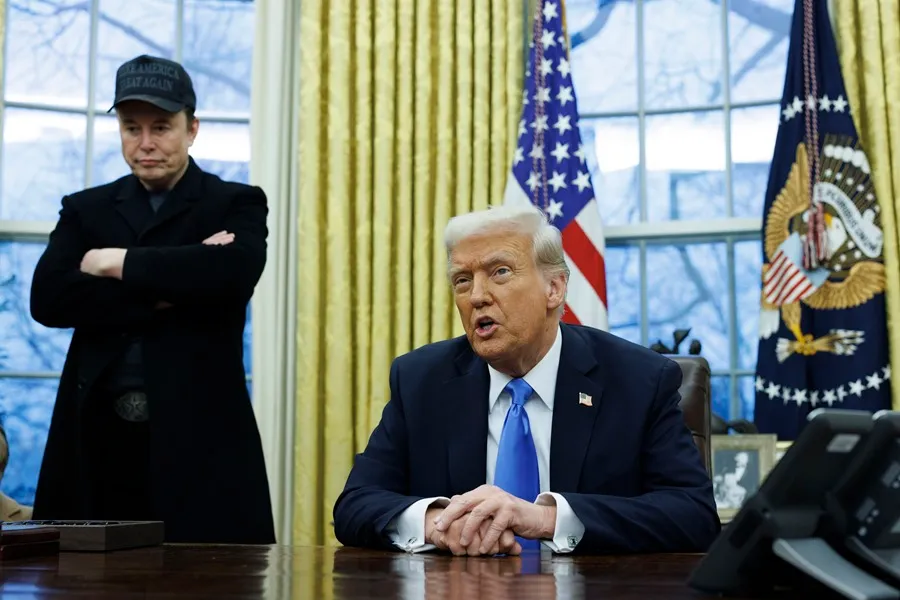International
140: this is the number of countries that recognize the Palestinian state

About 140 countries of the 193 countries that are part of the United Nations (UN) have recognized the Palestinian State and of them eight belong to the European Union (EU), although only Sweden and Cyprus did so after entering it.
Sweden was the last country in the European Union to recognize the Palestinian State, on October 30, 2014.
Three years earlier, on January 30, 2011, it had been done by Cyprus, a member of the European Union since 2004.
The recognition by Sweden in 2014 opened the debate between the EU member states and several legislative chambers approved resolutions to urge their governments to officially recognize Palestine as a state, including the British parliament, the Irish Senate, the Congress of Deputies in Spain or the French Assembly.
On December 17, 2014, the European Parliament (EP) joined the recognition of Palestine, by supporting a joint resolution of the majority political groups that won 498 votes in favor, 111 against and 88 abstentions.
The other six EU countries that have recognized the Palestinian State are the Czech Republic, Slovakia, Hungary, Bulgaria, Poland and Romania.
They all did it days after, on November 15, 1988, the Palestinian National Council proclaimed in Algiers the establishment of the state of Palestine, while accepting UN Security Council resolutions 242 and 338, which meant recognizing Israel’s right to exist.
Six of those countries then belonged to the Soviet bloc, including the Czech Republic and Slovakia, then united in a single country, Czechoslovakia.
In the year following its proclamation, the Palestinian State was recognized by ninety countries and in 1995 the number already exceeded one hundred.
Cuba, then also a Soviet ally, and Nicaragua were the first Latin American countries to recognize Palestine as a state, in 1988. Currently, 24 Latin American countries recognize it, all except Mexico and Panama.
The last to do so was Colombia, on August 8, 2018.
The Bahamas, on May 8, was the last country to formally recognize Palestine as a State and its right to “self-determination.” Shortly before, Trinidad and Tobago (May 3), Jamaica (April 24) and Barbados (April 21) had done it.
Among those who do not recognize the Palestinian state, in addition to countries of the European Union such as Germany, France or Italy, the United States, the United Kingdom or Australia stand out.
International
Paraguay summons Brazilian ambassador over Itaipú espionage scandal

Paraguay summoned the Brazilian ambassador in Asunción on Tuesday to demand “explanations” and called its own representative in Brasília for consultations following Brazil’s acknowledgment of an espionage operation. The Brazilian government, led by President Luiz Inácio Lula da Silva, attributed the operation to the previous administration.
The surveillance effort aimed to uncover Paraguay’s position in now-suspended negotiations with Brazil regarding the pricing of electricity from the binational Itaipú hydroelectric plant, according to reports in the Brazilian press.
The Brazilian government “categorically denied any involvement in the intelligence operation,” stating in a Foreign Ministry communiqué on Monday that the espionage was carried out under former President Jair Bolsonaro’s administration (2019-2023).
“The operation was authorized by the previous government in June 2022 and was annulled by the interim director of the (state intelligence agency) ABIN on March 27, 2023, as soon as the current administration became aware of it,” Brazil’s government asserted.
Paraguay’s Foreign Minister Rubén Ramírez announced that Brazilian Ambassador José Antonio Marcondes de Carvalho was summoned “to provide detailed explanations” regarding the operation. Additionally, Paraguay recalled its diplomatic representative in Brasília “to report on aspects related to the intelligence activity conducted by Brazil regarding Paraguay’s government affairs.”
International
Elon Musk to step down as government advisor, per Trump insiders

President Donald Trump has informed his inner circle that Elon Musk will be stepping down from his role as a government advisor, according to a report by Politico today.
Citing three individuals close to Trump, Politico states that the president is pleased with Musk’s leadership at the Department of Government Efficiency (DOGE), where he has implemented significant budget cuts. However, both have agreed that it is time for Musk to return to his businesses and support Trump from a different position outside the government.
A senior administration official told Politico that Musk will likely maintain an informal advisory role and continue to be an occasional visitor to the White House. Another source warned that anyone thinking Musk will completely disappear from Trump’s circle is “deluding themselves.”
According to the sources, this transition is expected to coincide with the end of Musk’s tenure as a “special government employee,” a temporary status that exempts him from certain ethics and conflict-of-interest regulations. This 130-day period is set to expire in late May or early June.
International
Milei vows to make Argentina so strong that Falkland Islanders “choose” to join

Argentine President Javier Milei reaffirmed his country’s claim over the Falkland Islands (known as the Islas Malvinas in Argentina) and praised the role of the nation’s armed forces during a ceremony marking the “Veterans and Fallen Soldiers of the Malvinas War Day,” commemorating 43 years since the 1982 conflict with the United Kingdom.
Argentina continues to assert sovereignty over the islands, arguing that Britain unlawfully seized them in 1833.
“If sovereignty over the Malvinas is the issue, we have always made it clear that the most important vote is the one cast with one’s feet. We hope that one day, the Malvinas residents will choose to vote with their feet and join us,” Milei stated.
“That is why we aim to become a global power—so much so that they would prefer to be Argentine, making deterrence or persuasion unnecessary. This is why we have embarked on a path of liberation, working to make Argentina the freest country in the world and once again the nation with the highest GDP per capita on the planet,” he added.
-

 Central America3 days ago
Central America3 days agoU.S. Homeland Security Secretary urges Mexico to strengthen Guatemala border
-

 Central America3 days ago
Central America3 days agoPanama grants Martinelli 72-hour extension to travel to Nicaragua
-

 International2 days ago
International2 days agoParaguay summons Brazilian ambassador over Itaipú espionage scandal
-

 Central America4 days ago
Central America4 days agoPanama police clarifies that Interpol alert for Martinelli is still pending
-

 International3 days ago
International3 days agoTrump urges Putin to reach peace deal
-

 International4 days ago
International4 days agoDeportation flight lands in Venezuela; government denies criminal gang links
-

 Sports2 days ago
Sports2 days agoFilipe Luis debuts as coach in Copa Libertadores with Flamengo
-

 Central America2 days ago
Central America2 days agoGuatemalan police officer killed in mob riots over baby kidnapping
-

 International2 days ago
International2 days agoElon Musk to step down as government advisor, per Trump insiders
-

 Sports2 days ago
Sports2 days agoVenezuela investigates 18 baseball players seeking asylum in Spain
-

 International2 days ago
International2 days agoMilei vows to make Argentina so strong that Falkland Islanders “choose” to join
-

 International2 days ago
International2 days agoICE agent’s arrest of suspect sparks controversy in Boston
-

 International2 days ago
International2 days agoÓscar Arias: Trump’s trade policies are a step backward















